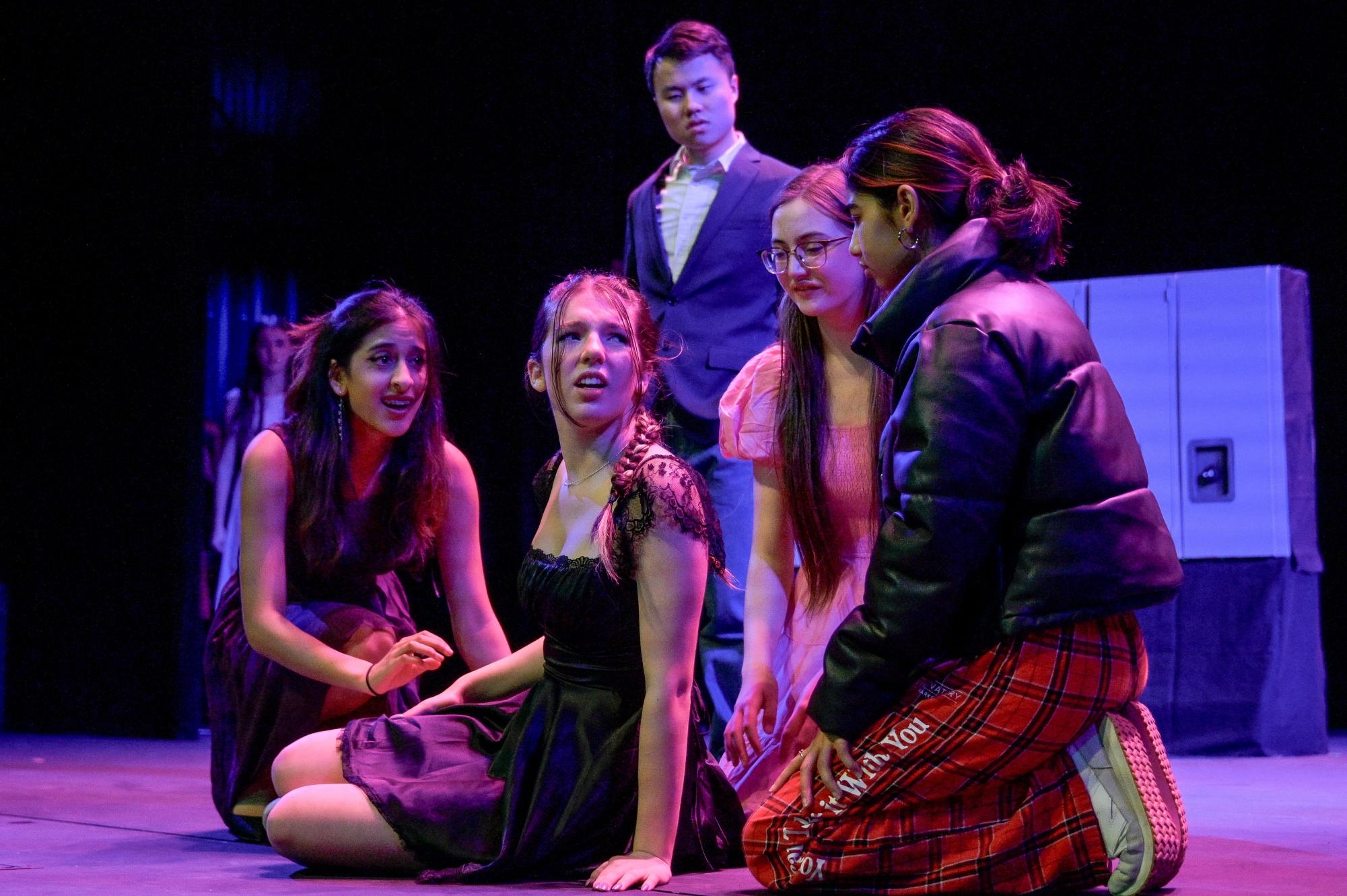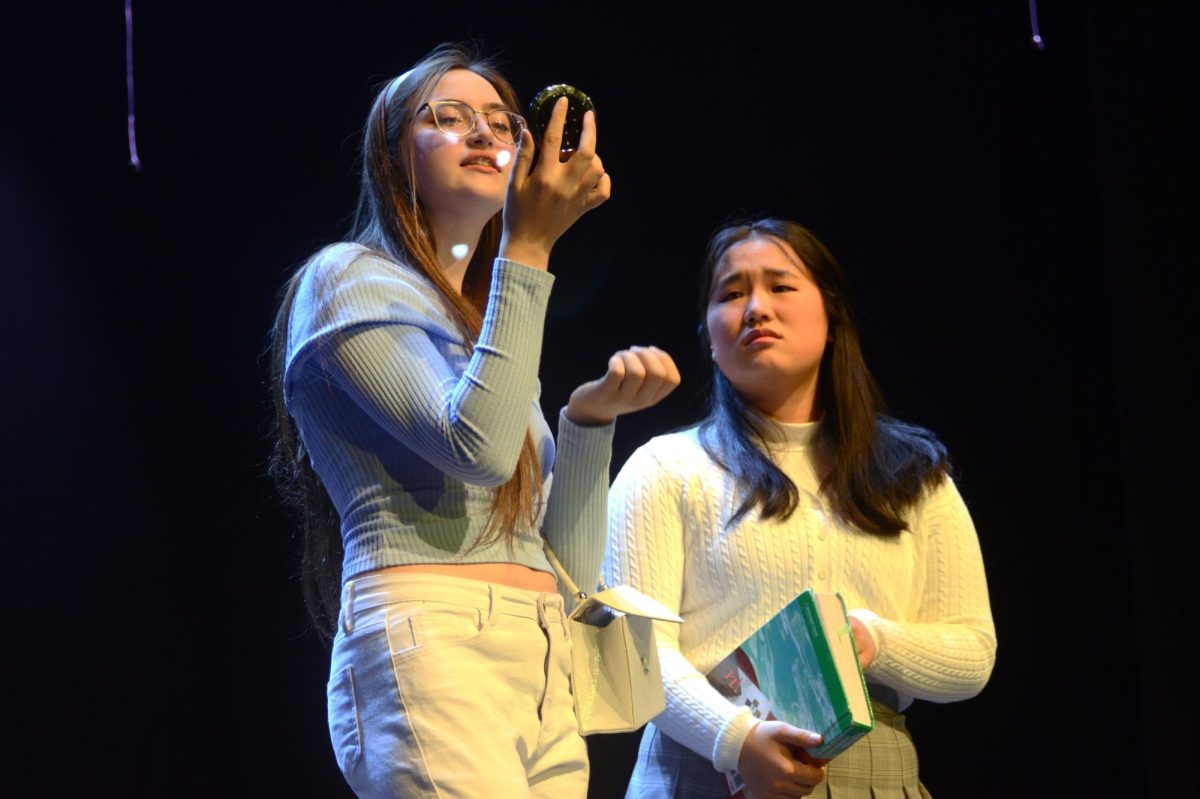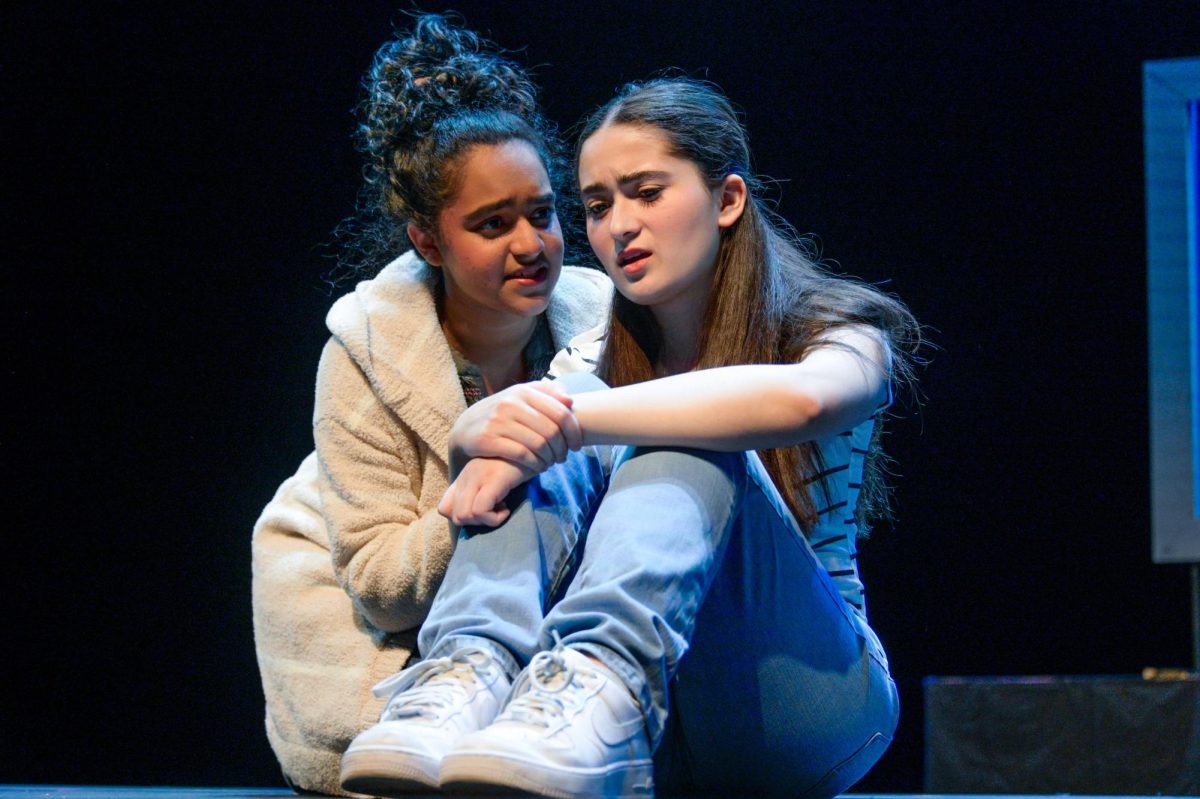A girl strides up to the mirror and finds her younger self staring back. A classroom strains under the stress of a sudden lockdown. A quartet of teenagers face the social, familial and academic pressures of adolescence. An audition reveals the quirks and vulnerabilities of musical hopefuls.
The annual Senior Directed Showcase (SDS) presented four 30-minute plays on Jan. 12 and Jan. 13 at Patil Theater.
The four senior directors, Isabella Ribiero, Mariana Ryder, Selina Xu and Sonya Apsey, developed their shows in parallel with a hands-on directing course. As a cohort, they selected, edited and workshopped their one-act plays. Their diverse personalities allowed them to share the burden of SDS and lean on each other during this time of growth.
“It was great to step into that role and really find ourselves as people, not only as directors,” Isabella said. “We created such a great friendship and bond throughout this entire process. The amount of work and thought that gets put into SDS really cemented us as our little group of four.”
Isabella’s play “Perfect,” written by Alan Hanhei commenced the showcase. Over the course of adolescence, Bethany grapples with her self-esteem and perfection. Marni Kuo (5), Megha Unny (9) and Rhiannon Sikand (12) work in tandem through a mirror prop. Together, they tell the story of Bethany’s evolution from adolescence to adulthood and confidence to insecurity. Watching the concept realize itself onstage after months of rehearsal triggered both joy and relief for Isabella.
“I had never cried watching the performances,” Isabella said. “Tech came through and made sure our light cue for the mirror was working, and I felt the wind knocked out of me. Finally, finally the vision was there. I sprinted backstage and hugged my cast, sniffing each other’s sweat and tears. It was genuinely the proudest moment of my entire life.”
Taking a turn, Mariana’s “Lockdown,” written by Douglas Craven, revolves around eight students during an official lockdown. Tensions worsen when a frosh, played by Alana Brill (10), bolts out of the classroom and Teacher Karsh, Vedant Balachandran (11), chases after her, leaving students with the daunting decision to leave the classroom or not.
“I came at everything through almost a debate perspective,” Mariana said. “I wasn’t focusing on the artistic value, and that was something I had to overcome by putting much more attention on the details. I was pretty proud of how much time I spent working on the lighting finally paid off.”
After intermission, Selina presented “Pressure” by Lindsay Price. The show focuses on four characters, Alice Tao’s (12) Penny, Jason Shim’s (11) Alex, Shreeya Merchia’s (12) Tera and Michael Filev’s (9) Kyle. Over the course of a semester, social, familial and academic pressures expose the cracks in their coping mechanisms.
“The combination of the different directors and actors just makes each play so unique,” Alice said. “When you go through tech week and daily rehearsals with a group of people you’ve never met before, you are going to be friends no matter what. SDS is a really friendly space to go out of your comfort zone, especially for non-actors.”
Sonya’s “The Audition,” written by Don Zolidis, finished the evening. Stellan Lindh’s (9) Mr. Torrance, the ambitious new theater teacher, introduces the production “A Chorus Line” to the high school. From the overly confident Yuma, played by Evan Yuan (9), to the hesitant Elizabeth, played by Christy Ma (10), the show portrays the different attitudes aspiring actors gear while auditioning.
“You have rehearsals together and when you’re not, you’re either talking together or you’re helping each other memorize lines,” Evan said. “That helps with community bonding, especially in ‘The Audition’ and the other plays.”
All of the plays centered around coming of age and high school, familiar ground for both cast and audience. Alice Tao (12), who plays stressed class president Penny in “Pressure,” found the similarities between her and Penny’s situation helpful in transitioning from Harker student to actor.
“I think everyone always has a part of the character in them to begin with,” Alice said. “Each character, no matter how big or small, is here to tell a story, and they all have a moral in the end. As a cast, we started by giving the characters a caricature, but as we kept going on the line between the character and yourself blurs, an osmosis in a way.”





